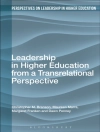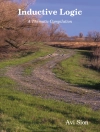In Addicted to Incarceration, author Travis C. Pratt uses an evidence-based approach to explore the consequences of what he terms America′s ‘addiction to incarceration.’ Highlighting the scope of the issue, the nature of the political discussions surrounding criminal justice policy in general and corrections policy in particular, and the complex social cost of incarceration, this book takes an incisive look at the approach to corrections in the United States.
The Second Edition demonstrates that the United States′ addiction to incarceration has been fueled by American citizens′ opinions about crime and punishment, the use of incarceration as a means of social control, and perhaps most important, by policies legitimized by faulty information. Analyzing crime policies as they relate to crime rates and society′s ability to both lower the crime rate and address the role of incarceration in preventing future crime, this book shows students how ineffective the rush to incarcerate has been in the past and offers recommendations and insights to navigate this significant problem going forward.
สารบัญ
Preface to the Second Edition
New to the Second Edition
Acknowledgments
PART I: SETTING THE STAGE
1. Introduction
The Politics and Consequences of Incarceration
Summary
Discussion Questions
Key Readings
2. The Politics of Punishment in the United States
Problem Ownership, Punishment Philosophies, and Changes in Corrections Policy Over Time
Political Capital and Getting Tough
The Rise of Evidence-Based Correctional Policy
Summary
Discussion Questions
Key Readings
PART II: SOURCES AND DIMENSIONS OF MISINFORMATION
3. Misinformation About the Crime Problem
Victimization and the Fear of Crime
Nonserious Crime as Gateway Offending?
Incapacitation and Errors in Prediction
Summary
Discussion Questions
Notes
Key Readings
4. Misinformation About Public Opinion
Global Versus Specific Attitudes About Punishment
Public Support for Alternative Punishment Philosophies
Summary
Discussion Questions
Notes
Key Readings
5. Misinformation About Prisons and Crime Control
Prisons and Crime Control: The Empirical Evidence
Rethinking Offender Decision Making
Summary
Discussion Questions
Notes
Key Readings
PART III: CONSEQUENCES AND MOVING FORWARD
6. The Social Costs of Incarceration
Consequences of Incarceration for Offenders
Consequences of Incarceration for Families and Children
Consequences of Incarceration for Communities
Consequences of Incarceration for Social Institutions
The Case of Immigration, Crime, and Punishment
Summary
Discussion Questions
Notes
Key Readings
7. Conclusions and Recommendations
The Persistent Addiction
Rethinking Crime Control Policy
Rethinking Corrections Policy
Reconnecting Evidence With Policy
Parting Thoughts: Breaking the Addiction
Discussion Questions
Key Readings
References
About the Author
Index
เกี่ยวกับผู้แต่ง
Travis C. Pratt received his degrees from Clark College, Washington State University (BA, Political Science; MA, Criminal Justice), and the University of Cincinnati (Ph D, Criminal Justice). He has served on the faculty of the School of Criminal Justice at Rutgers University-Newark, was the Director of the Program in Criminal Justice at Washington State University, and a Professor the School of Criminology and Criminal Justice at Arizona State University. He is currently a Fellow with the University of Cincinnati Corrections Institute. His research and publications focus primarily on structural and integrated theories of crime and delinquency (including macro-level, multilevel, and individual-level approaches to the study of criminal/deviant behavior) and correctional policy (both institutional and community corrections). He has published over 100 articles that have appeared in the leading peer-reviewed journals in the field, including: Crime and Justice: A Review of Research; Criminology; Journal of Youth and Adolescence; Journal of Pediatrics; Journal of Quantitative Criminology; Journal of Research in Crime and Delinquency; and, Justice Quarterly. He received the 2006 Ruth Shonle Cavan Outstanding Young Scholar Award from the American Society of Criminology for his research and scholarship.












